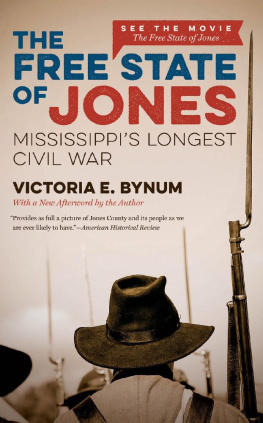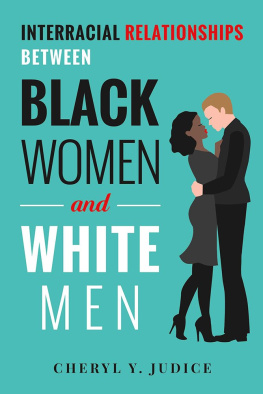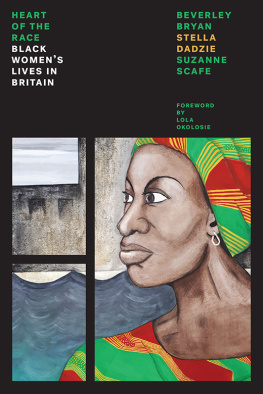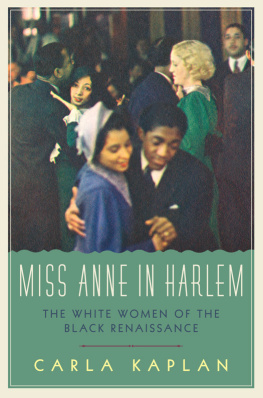Unruly Women
Gender & American Culture
Coeditors
Linda K. Kerber
Nell Irvin Painter
Editorial Advisory Board
Nancy Cott
Cathy N. Davidson
Thadious Davis
Jane Sherron De Hart
Sara Evans
Mary Kelley
Annette Kolodny
Wendy Martin
Janice Radway
Barbara Sicherman
1992 The University of North Carolina Press
All rights reserved
Manufactured in the United States of America
07 06 05 04 03 9 8 7 6 5
Library of Congress Cataloging-in-Publication Data
Bynum, Victoria E.
Unruly women : the politics of social and sexual control in the old South / by Victoria E. Bynum.
p. cm. (Gender & American culture)
Includes bibliographical references (p.) and index.
ISBN-13: 978-0-8078-2016-2 (cloth : alk. paper)
ISBN-10: 0-8078-2016-4 (cloth : alk. paper)
ISBN-13: 978-0-8078-4361-1 (pbk. : alk. paper)
ISBN-10: 0-8078-4361-X (pbk. : alk. paper)
1. WomenNorth CarolinaHistory19th century. 2. Deviant behaviorHistory19th century. 3. Female offendersNorth CarolinaHistory19th century. 4. Social controlHistory19th century. 5. North CarolinaRace relations.
I. Title. II. Series.
HQ1438.N6B96 1992
305.409756dc2091-33851
CIP
The paper in this book meets the guidelines for permanence and durability of the Committee on Production Guidelines for Book Longevity of the Council on Library Resources.
An earlier version of Chapter 6 appeared as War within a War: Womens Participation in the Revolt of the North Carolina Piedmont, 186365, Frontiers: A Journal of Women Studies 9, no. 3 (1987): 4349. Portions of Chapter 4 and the Epilogue appeared as The Lowest Rung: Court Control over Poor White and Free Black Women, Southern Exposure 12 (November-December 1984): 4044.
For Gregg
Contents
Tables, Charts, & Maps
Tables
1.1. Population in Counties and State by Sex, 1860
1.2. Female Population in Counties and State by Race, 1860
1.3. Wealth of Households Headed by Free Black Women, in Comparison to White, by County, 1860
1.1. County and State Population by Race, 1860
1.2. Concentration of Slaveholding by County and State, 1860
1.3. Real and Personal Wealth of Households by County and State, 1860
1.4. Sizes of Farms by County and State, 1860
1.5. Real and Personal Wealth of Female-Headed Households by County, 1860
3.1. Judgments Delivered in Divorces Petitioned by Females in Superior Court, 18301860
3.2. Judgments Delivered in Divorces Petitioned by Males in Superior Court, 18301860
3.3. Complaints Filed by Female Plaintiffs in Divorce Cases Heard in Superior Court, 18301860
3.4. Complaints Filed by Male Plaintiffs in Divorce Cases Heard in Superior Court, 18301860
3.5. Crimes of Violence Committed against Women Charged in the Lower Courts, 18501860
3.6. Crimes of Violence Committed by Women Charged in the Lower Courts, 18501860
4.1. Charges of Sexual Misconduct and Larceny Brought against Women in the Lower Courts, 18501860
4.2. Number and Race of Children Apprenticed between 1850 and 1860
4.3. Household Composition in 1860 of Women Charged with Bastardy, 18501860
4.4. Combined Real and Personal Property Values of Households of Women Charged with Bastardy between 1850 and 1860
5.1. Number of Women Charged with Civil and Criminal Misconduct in the Lower Courts, 18501860
5.2. Number of Women Charged with Civil and Criminal Misconduct in the Lower Courts, 18611866
6.1. Combined Real and Personal Property of Household Heads of Fifty Deserters or Draft Evaders of Montgomery County, 1860
6.2. Number of Dependents under the Age of Eighteen in Households of Fifty Deserters or Draft Evaders in Montgomery County, 1860
Charts
4.1. The Creation of a Subculture
6.1. Wesleyan Unionist Families of Montgomery County, Showing Intermarriage of Hulins, Moores, Hurleys, and Beamans
Maps
1. North Carolina in 1860, Showing Principal Counties of Study
2. North Carolina in 1860, Showing Principal Areas of Unionism during the Civil War
Acknowledgments
Many people have assisted me in my work on this book. I wish to thank Thomas Dublin for encouraging my insights and seriousness of purpose as this study evolved into an analysis of disparate groups of unruly women and their relationship to the political economy of nineteenth-century North Carolina. I benefited from discussing history with Harry Scheiber and with Kathleen Berkeley, Stephen Hahn, Earl Pomeroy, Edward Reynolds, and Robert Ritchie. I am deeply indebted to Dolores Janiewski, who provided crucial intellectual stimulation and moral support for my ideas.
Friends like Lucy Duvall, Ann Elwood, Adrienne Hood, Richard Hunt, Colleen OConnor, and Kristin Webb shared my high moments in graduate school and made more bearable the hard times. Charlene Borga, Laurie Fellwock, and my children, Randy and Erika Pierce, helped me not to lose sight of the bigger picture in life.
I would like to thank the fine staffs of the North Carolina Department of Archives and History, the Special Collections Department of Duke University, and the Southern Historical Collection of the University of North Carolina, Chapel Hill, for their cooperation and courtesy during the year I spent in North Carolina researching this book. A fellowship from the Business and Professional Womens Foundation in 1984 allowed me to return to the East Coast for additional research. Stephen Hahn and Ira Berlin made it possible for me to sift through the files of the Freedmen and Southern Society Project at the University of Maryland.
Several scholars and students of North Carolina history have shared their time and ideas with me. I owe thanks especially to William Auman, John Inscoe, LuAnn Jones, Anne Firor Scott, Harry Watson, and Peter Wood. I am particularly grateful to Marjoleine Kars for sharing my enthusiasm for North Carolinas unruly women and for extending numerous courtesies to my daughter and me during our stay in North Carolina.
I have profited from discussions with students of womens history at Southwest Texas State University. Lisa-Marie Coppoletta and Jonnie Wilson, in particular, have shared important insights about the convergence of race, class, and gender. These insights have enriched this book.
I want to thank Iris Tillman Hill, former editor-in-chief at the University of North Carolina Press, for soliciting my manuscript. I am equally fortunate that her successor, Kate Torrey, worked patiently with me to produce this book. Likewise, managing editor Sandra Eisdorfer and copyeditor Trudie Calvert sharpened my prose and saved me from embarrassing textual errors. I also wish to thank Nell Painter and Colin Palmer for challenging me to expand my study and sharpen my analysis.
I would like to thank the following people who have chaired or commented on conference papers that I have given as this book took shape: Kathleen Berkeley, Catherine Clinton, Suzanne Lebsock, George Rable, LeeAnn Whites, Carol Berkin, and Harold Woodman.
I regret that my father, Stanley Bynum, did not live to see my book in print, especially since his rural Mississippi roots provided much of the initial inspiration for my work. I owe my mother, Margaret Bynum, special thanks for encouraging me always to value ideas over objects and for providing financial assistance during the final critical years of this study.





